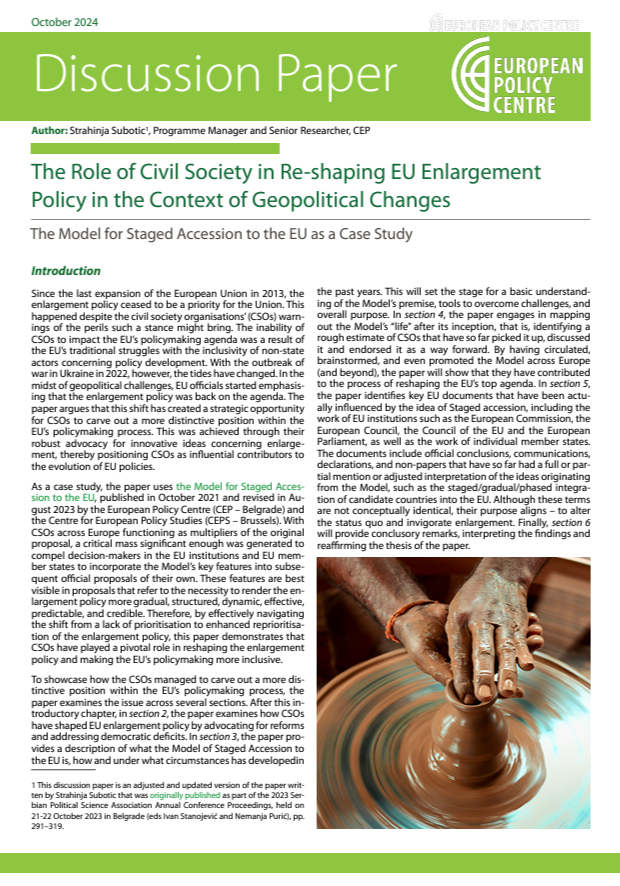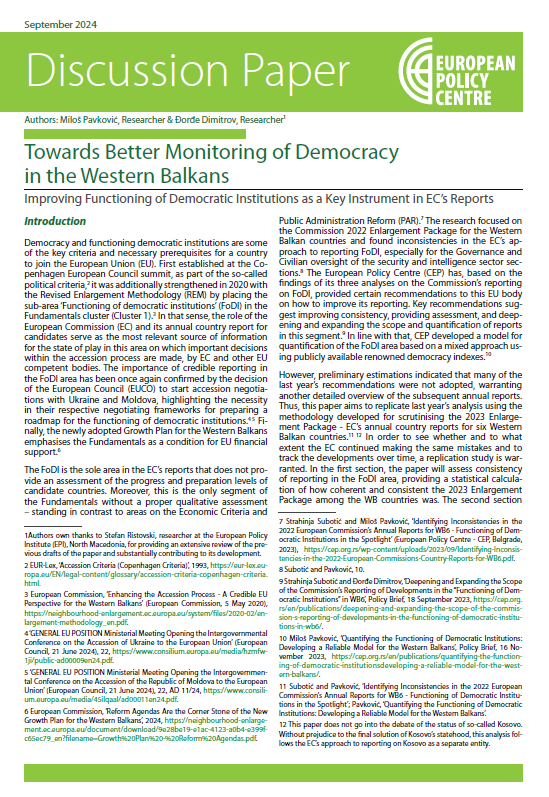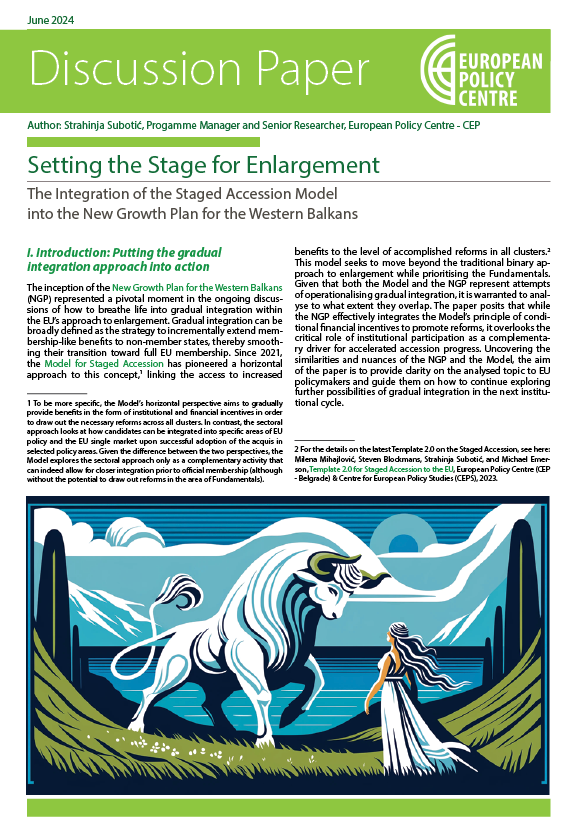Headquarters: Svetog Nauma 7, 11000
Office address: Đorđa Vajferta 13, 11000
Phone:: +381 11 4529 323
Guided by the aim to unlock the political will necessary to implement reforms and expedite the next enlargement, CEP has advocated, as part of the Staged Accession Model, for the gradual, merit-based opening of EU institutions to EU candidates. Using the level of achieved reforms as a basis for rewards, institutional incentives were intended to work in tandem with financial incentives that entailed increasing but conditioning funds that would be available to candidates. The proposal for increasing EU funds was designed to reduce the socio-economic convergence gap between the Western Balkans and the EU and encourage the development of domestic absorption capacities of candidate countries. The institutional incentives were intended to enable candidates to engage in discussions with member states’ officials on mainstream EU policy issues, socialise with their EU peers and gradually develop their administrations’ capacities to assume membership responsibilities. Such a proposed integration framework was subsequently reflected in the European Council’s 2022 June Conclusions on gradual integration, indicating a readiness of EU institutions and member states to innovate the enlargement toolbox. However, unlike the financial incentives which have been incorporated into the New Growth Plan for the Western Balkans, the institutional incentives remain largely under-operationalised to date. The European Commission and the European Parliament have recently expressed willingness to open their doors to candidates’ participation, while the European Economic and Social Council (EESC) has already involved civil society organisations from candidate countries in its work. Yet, the Council of the EU has so far done little to engage with the candidates.
The reluctance of the Council to take decisive action on including candidates in its work is counterintuitive, given the widespread acclaim that the idea of institutional incentives has received across the EU member states. To understand the underlying reasons behind this paradox and find a way to resolve it, CEP has engaged with the Council of the EU and has visited 23 of the 27 member states to date. Building upon the collected insights, this paper outlines the encountered challenges and proposes a new, feasible strategy moving forward. The basic idea is that opening the doors of the EU Council is not only legally feasible but also practically achievable. Transitioning from the original proposal presented in Template 2.0 for Staged Accession in August 2023, this paper offers a revised but more realistic pathway for involving the candidate countries in the work of the EU Council while accounting for the identified practical needs and concerns of member states. The ideas presented in this paper are primarily directed at the upcoming Council Trio–Poland, Denmark, and Cyprus–who would be in a unique position to set a positive example for subsequent Trios to follow by agreeing to apply the proposed framework for gradual institutional participation already in the first half of 2025.


